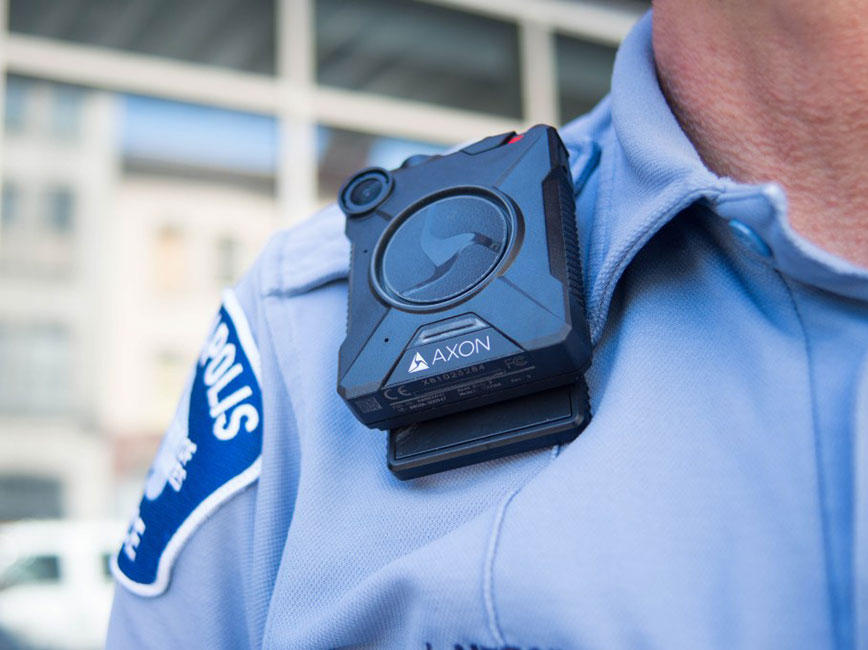Police policy reform
Overview
Our goal is to:
- Remove City barriers to progress
- Advance deep, structural police reform
To reach this goal, we will create policies and practices that:
- Strengthen accountability
- Improve police-community relations
- Work with our legislative partners to rescind state obstacles to progress
To create new policies and practices, we will work with:
- The community
- Advocates
- Experts
The City made several reforms related to the Minneapolis Police Department (MPD) in 2020. They include new:
- Disciplinary processes
- Body worn camera policy changes
- Use of force policy and reporting requirements
- Unannounced entry (no-knock) warrants and searches
Additional developments related to police reform:
- Minnesota Department of Human Rights investigation
- Procedural justice
- Prior year reforms
Disciplinary processes
To revise the MPD disciplinary processes, Mayor Frey and Chief Arradondo worked in partnership with the:
- City Attorney’s Office
- Civil Rights Department
Their goal was to:
- Boost accountability
- Enhance misconduct investigations
- Increase the likelihood that disciplinary decisions are upheld
Under the new processes, the City will:
- Place a City Attorney on the front end of police misconduct investigations. The City Attorney will:
- Analyze available evidence
- Determine whether to further pursue areas of investigation
- Assign a City Attorney to give legal advice to the Chief at the time of disciplinary decisions.
- Place staff from the City Attorney’s Office in the MPD training unit. The staff will review training materials before they are used.
Body worn camera policies

Mayor Frey and Police Chief Arradondo announced new policies tightening rules for officer body worn cameras. Their goal is to improve:
- Accountability
- Transparency
- Credibility
The new policies:
- Prevent officers involved in critical incidents from reviewing body camera footage before completing the initial police report
- Allow the department to better capture:
- Officers’ perceptions
- Factors believed to exist at the time of officers’ actions
- Provide clearer direction to supervisors about immediate on-scene communications
- Clarify time requirements for reporting
Use of force policy and reporting requirements
Mayor Frey and Chief Arradondo announced a complete change to the MPD's:
- Use of force policy
- Reporting requirements
The new use of force policy:
- Requires officers to:
- Use the lowest level of force needed to safely engage a subject
- First consider all reasonable alternatives before using deadly force
- Includes the threat of force as one type of use of force
- Prohibits:
- Behavior that incites or escalates a situation
- Shooting at moving vehicles, with limited exceptions
The new reporting requirements require:
- More detail and specific information about how officers report use of force
- Documentation in all police reports about attempts to de-escalate
Unannounced (no-knock) entry warrants and searches
Our new policy for unannounced entry (no-knock) warrants:
- Explains the process and expectations
- Is now part of City law
In November 2020, Mayor Frey addressed unannounced entry warrants in MPD policy for the first time.
The new requirements:
- Make it clear that an officer must announce before entering
- Allow for transparency and accountability for our officers
- Provide clear expectations for the community
Goals of this policy change:
- Increased safety for officers and civilians
- Decreased potential for accidental or intentional armed conflict between police and civilians
Procedural justice
The National Initiative for Building Community Trust and Justice chose the MPD as a pilot site. Under Chief Arradondo’s leadership, the MPD began its work in procedural justice.
All MPD sworn and non-sworn personnel are trained in:
- Procedural justice theory
- Implicit bias
- Trauma
Office of Police Conduct Review
The Office of Police Conduct Review (OPCR) is a neutral agency that investigates police misconduct complaints.
OPCR's vision is to:
- Create significant positive cultural changes in interactions between police officers and the community
- Enhance and retain mutual respect and compassion
Additional developments related to police reform
State investigation and restraining order
On June 3, 2020, the Minnesota Department of Human Rights launched an investigation into the Minneapolis Police Department (MPD).
The investigation:
- Is the result of a civil rights charge related to the killing of George Floyd.
- Looks into MPD policies, procedures and practices over the past 10 years.
If needed, investigators will:
- Give direction to the City and the MPD
- Help create policies and procedures to prevent systematic discriminatory practices toward people of color
Mayor Frey and the City Council support the investigation.
Read about the Minnesota Department of Human Rights investigation
Office of Police Conduct Review

Explore the DataSource
Visit the DataSource to view and search City of Minneapolis interactive visualizations and dashboards.
Related dashboards
Contact us
Mayor's Office
Address
City Hall350 S. Fifth St., Room 331Minneapolis, MN 55415
Office hours
8 a.m. – 4:30 p.m.
Monday – Friday
Office of Police Conduct Review
Phone
Address
City Hall350 Fifth St. S.Room 239
Minneapolis, MN 55415
Office hours
8:30 a.m. – 4:30 p.m.
Monday – Friday


